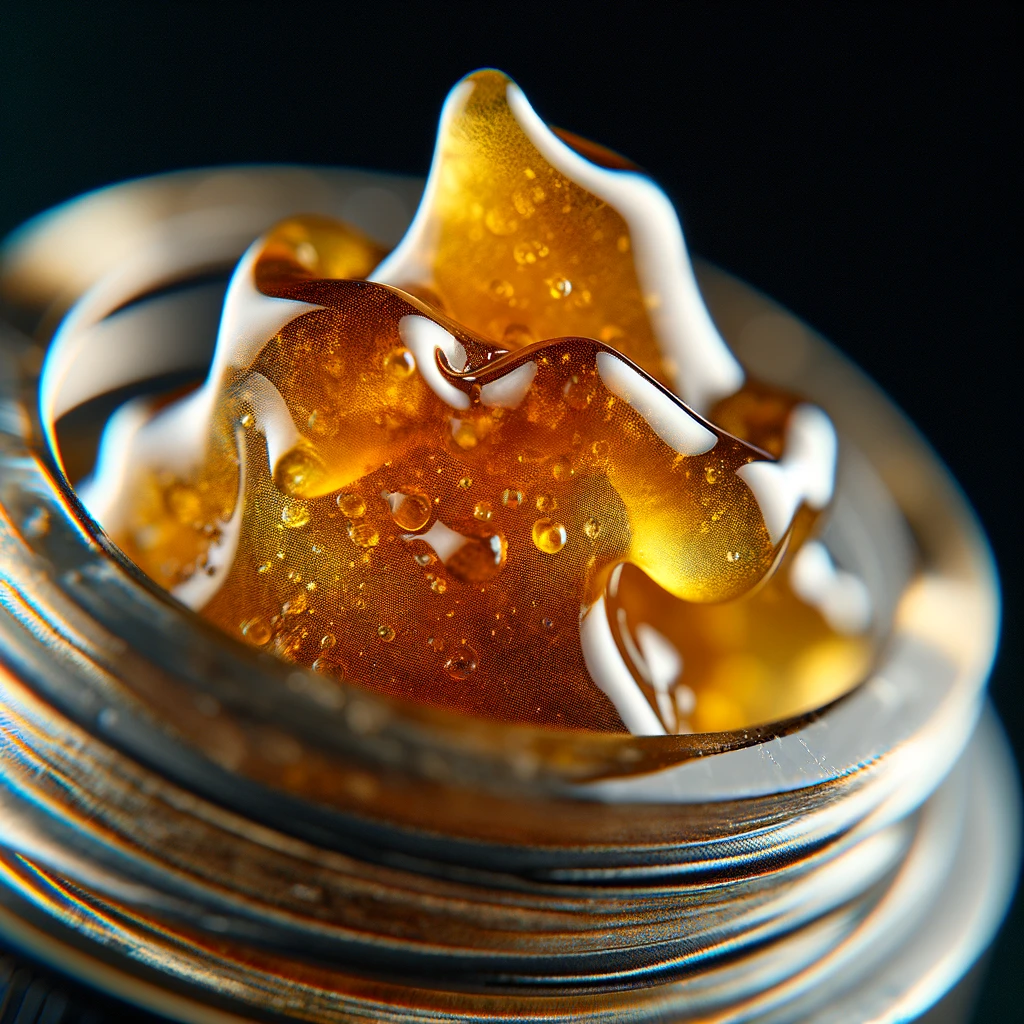Top Cannabis Photography Trends to Elevate Your Marketing in 2025
- Erin & Jake
- Dec 6, 2024
- 6 min read
Updated: Aug 20, 2025
As the cannabis industry continues to grow, so does the demand for visually stunning and effective cannabis marketing content. In 2025, cannabis photography trends are poised to redefine how brands connect with their audience, showcasing products in creative, authentic, and engaging ways.
From innovative lighting techniques to macro cannabis photography that highlights the intricate details of cannabis products, to cannabis lifestyle photos that tells a compelling brand story, these trends offer a fresh perspective for cannabis companies looking to elevate their marketing strategies.
This article explores the top cannabis photography trends of 2025 and provides professional insights into how these innovations can transform your cannabis marketing campaigns.
Table of Contents:
The Importance of Visual Content in Cannabis Marketing
In the highly competitive cannabis market, visual content serves as the first impression for potential customers. With restrictions on traditional advertising and stringent regulations on how cannabis products can be marketed, cannabis photography has become an indispensable tool for brand storytelling and cannabis consumer engagement. High-quality imagery not only builds trust but also helps brands stand out on crowded shelves and digital platforms.
Cannabis consumers in 2025 are more discerning than ever, seeking transparency, quality, and authenticity in the brands they support. Visual content that captures the essence of a cannabis product can convey its quality, craftsmanship, and unique attributes, driving sales and fostering brand loyalty. By staying ahead of emerging trends, cannabis brands can create imagery that resonates with their target audience and meets the demands of an evolving market.
1. Innovative Lighting Techniques
Lighting is a cornerstone of professional photography, and in 2025, cannabis photographers are taking this aspect to new heights. Advances in LED technology and creative lighting setups allow for more nuanced and dynamic images, highlighting the texture, color, and form of cannabis products in ways that captivate viewers.
Natural vs. Artificial Lighting
Natural lighting remains popular for its ability to create authentic and relatable images, particularly for lifestyle shots. However, artificial lighting, especially through the use of high-CRI (Color Rendering Index) LEDs, is gaining traction for its consistency and precision. High-CRI LEDs mimic natural sunlight, ensuring that the colors of cannabis flowers and concentrates are accurately represented.
Backlighting and Side Lighting
Backlighting and side lighting are becoming increasingly popular for their ability to emphasize the translucent qualities of cannabis concentrates, such as shatter, resin, or oils. These techniques highlight the product’s purity and craftsmanship, creating a "glow" effect that draws the viewer’s eye.
Dynamic Shadows and Textures
Playing with shadows and textures can add depth and drama to cannabis photography. Photographers in 2025 are experimenting with patterned lighting, such as through the use of gobo lights, to cast intricate shadows that enhance the visual appeal of the product.
2. Macro Photography: Highlighting the Details
Macro cannabis photography is a trend that continues to dominate the cannabis industry, especially as consumers become more educated about the intricacies of cannabis products. This style of cannabis photography involves capturing extreme close-ups of cannabis flowers, concentrates, and edibles, showcasing details that are invisible to the naked eye.
Trichomes, the tiny resinous glands on cannabis flowers, are a major focus of macro cannabis photography. High-resolution cannabis images that highlight the crystalline structures of trichomes convey the potency and quality of the product, appealing to both connoisseurs and casual consumers.
Equipment and Techniques
Advances in camera technology and lenses make macro cannabis photography and micro cannabis photography more accessible and impactful than ever. Cannabis photographers are using specialized macro lenses with high magnification ratios, as well as focus-stacking techniques, to achieve sharp, detailed images. Controlled lighting setups are also essential for avoiding reflections and highlighting the natural beauty of the product.
Beyond Flowers
Macro cannabis photography is not limited to cannabis flowers. Concentrates, edibles, and even packaging can be captured in stunning detail, creating a comprehensive visual story that underscores the quality and craftsmanship of the entire product line.
3. Cannabis Lifestyle Photography: Telling a Brand Story
In 2025, cannabis lifestyle photography is all about creating relatable and aspirational content that connects with the audience on a personal level. Rather than simply showcasing the product, lifestyle imagery integrates cannabis into everyday scenarios, making it more accessible and appealing to a broader audience.
Authenticity Over Perfection
Cannabis consumers are increasingly drawn to cannabis brands that feel authentic and relatable. This trend is reflected in cannabis lifestyle photography that captures candid, "real-life" moments. Whether it’s a group of friends sharing a joint at a backyard gathering or a solo consumer enjoying a moment of relaxation, these images tell a story that resonates with the viewer.
Diverse Representation in Cannabis Branding
As the cannabis market expands, so does its audience. Brands in 2025 are prioritizing diversity in their lifestyle imagery, ensuring that their content reflects a wide range of ages, ethnicities, and lifestyles. This inclusivity not only broadens a brand’s appeal but also fosters a sense of community and belonging among consumers.
Cannabis in Context
Cannabis lifestyle photography often incorporates cannabis into broader narratives, such as wellness, creativity, or adventure. For example, imagery that shows cannabis being used as part of a yoga practice or outdoor exploration ties the product to desirable and relatable experiences, enhancing its marketability.
4. Minimalist Cannabis Product Photography
Minimalism is a growing trend in cannabis photography, focusing on clean, simple compositions that emphasize the product itself. By stripping away unnecessary elements, minimalist photography allows the viewer to focus on the key attributes of the product.
Monochromatic Backgrounds
Neutral or monochromatic backgrounds are often used in minimalist photography to create a clean and professional aesthetic. These backgrounds highlight the product’s colors and textures without distractions, making it ideal for e-commerce platforms and product catalogs.
Negative Space
Negative space—the empty area surrounding the subject—is another hallmark of minimalist photography. It creates a sense of balance and sophistication, drawing attention to the product while providing a modern and upscale feel.
Cannabis Flat Lay Compositions
Flat lay cannabis photography, where products are arranged and photographed from above, is another popular minimalist approach. This style is particularly effective for showcasing multiple items, such as a collection of cannabis products or accessories, in a cohesive and visually appealing way.
5. Sustainability and Eco-Friendly Themes
As sustainability becomes a central concern for consumers, cannabis brands are incorporating eco-friendly themes into their cannabis photography. This trend involves highlighting the natural and sustainable aspects of cannabis cultivation and production.
Outdoor and Cannabis Farm Photography
Images that showcase cannabis being grown in natural settings emphasize the organic and eco-friendly practices of the brand. Cannabis Drone photography is often used to capture expansive outdoor farms, creating visually stunning content that underscores the scale and sustainability of the operation.
Recycled and Biodegradable Packaging
Brands are also using photography to highlight their commitment to sustainability through packaging. Close-up shots of recycled or biodegradable materials, combined with natural elements like plants or wooden textures, convey a message of environmental responsibility.
Cannabis Brand Storytelling Through Imagery
Cannabis photography can be used to tell the story of a brand’s sustainable practices, from seed to sale. Documenting the cultivation, harvesting, and production processes creates a transparent narrative that appeals to eco-conscious consumers.
6. Interactive and 360-Degree Cannabis Photography
As technology evolves, interactive photography is becoming a key trend in cannabis marketing. This includes 360-degree images that allow consumers to explore products from every angle, creating a more engaging and immersive experience.
Virtual Dispensaries
Virtual dispensaries are leveraging 360-degree photography to offer online shoppers a realistic and interactive shopping experience. Consumers can "walk through" a dispensary, view products up close, and make informed purchasing decisions from the comfort of their homes.
Augmented Reality (AR) Integration
AR is being used to integrate interactive photography into marketing campaigns. For example, scanning a QR code on a product package could bring up a 360-degree view of the product, complete with detailed descriptions and usage tips.
Conclusion: Top Cannabis Photography Trends to Elevate Your Marketing in 2025
Cannabis photography in 2025 is at the forefront of marketing innovation, blending art, technology, and storytelling to create compelling content that resonates with consumers. From the precision of macro cannabis photography and the authenticity of lifestyle imagery to the sophistication of minimalist compositions and the engagement of interactive visuals, these trends offer endless opportunities for brands to elevate their marketing efforts.
By staying ahead of these trends and investing in high-quality photography, cannabis companies can build stronger connections with their audience, showcase their products’ unique qualities, and stand out in an increasingly competitive market. As the cannabis industry continues to evolve, so too will the creative possibilities for capturing its essence through cannabis photography.
Visit Our Website:
Let's Connect on Instagram:

























Comments